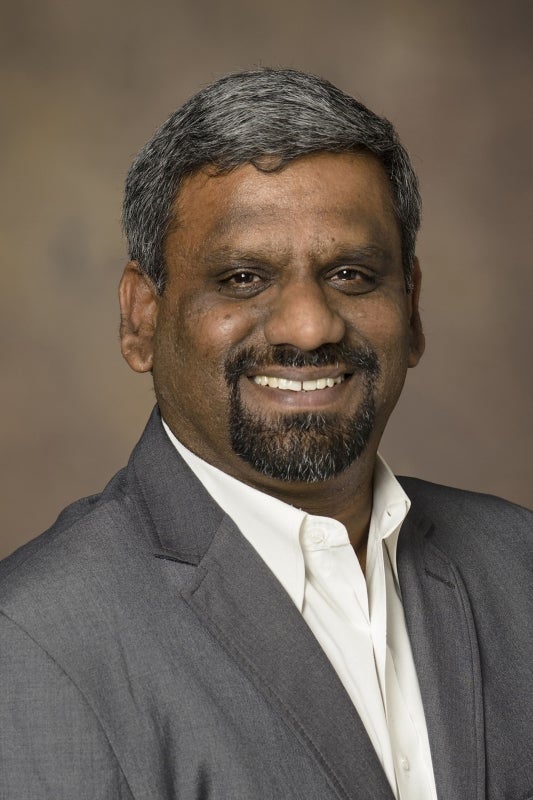Dedicated breast computed tomography (breast CT) is a new and emerging modality that has the potential to address some of the challenges in clinical practice. It does not require physical compression of the breast. It eliminates the tissue superposition problem that contributes to false-positives and missed cancers. Currently, breast CT has been approved for diagnostic imaging. Translating this technology for breast cancer screening will accelerate its transition to the clinic. The challenges, the approaches to address these challenges, and the progress made towards translating this technology for breast cancer screening will be discussed.

Srinivasan Vedantham, PhD, DABR, FAAPM, is a Professor in the Department of Medical Imaging and Biomedical Engineering. He joined the University of Arizona after serving as a faculty at the Department of Radiology at the University of Massachusetts Medical School and as an adjunct faculty in Biomedical Engineering at Worcester Polytechnic Institute. He received his PhD in Biomedical Engineering from Worcester Polytechnic Institute, Worcester, MA, and subsequently joined as a faculty at the Department of Radiology at Emory University School of Medicine, Atlanta, GA. He was elected as a Fellow by the American Association of Physicists in Medicine (AAPM).Dr. Vedantham’s research interests are in the design, development and clinical translation of novel x-ray imaging systems and imaging techniques with particular focus on oncological and interventional imaging. He along with his collaborators and colleagues had made major contributions to breast cancer imaging including small-field digital mammography for stereotactic core-biopsies, full-field digital mammography and digital breast tomosynthesis. Currently, he is working on developing advanced tomographic techniques and systems for breast imaging and its clinical translation.


